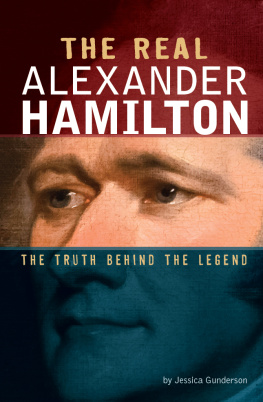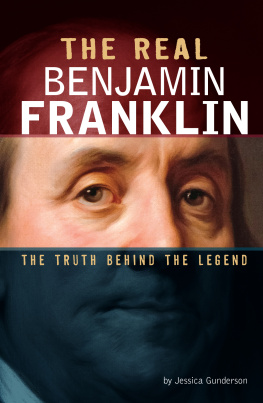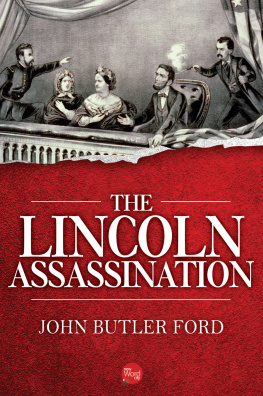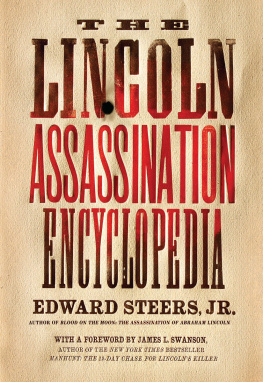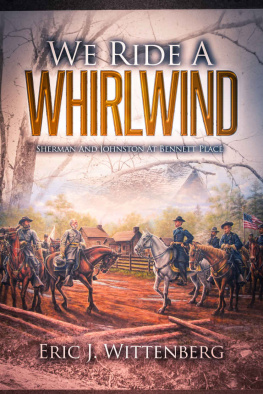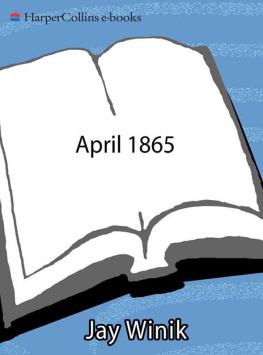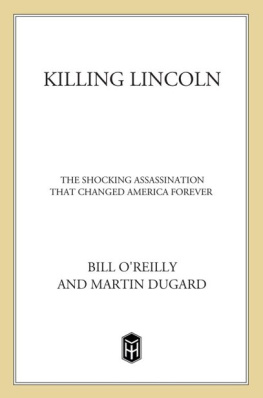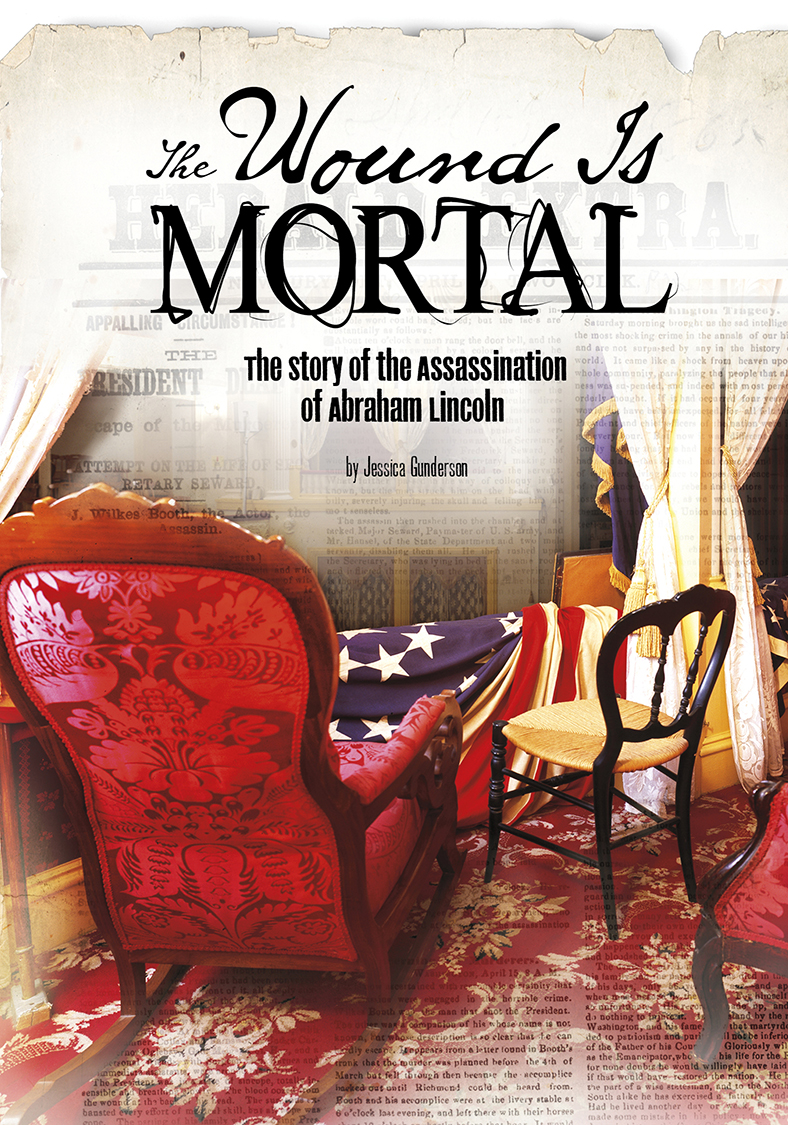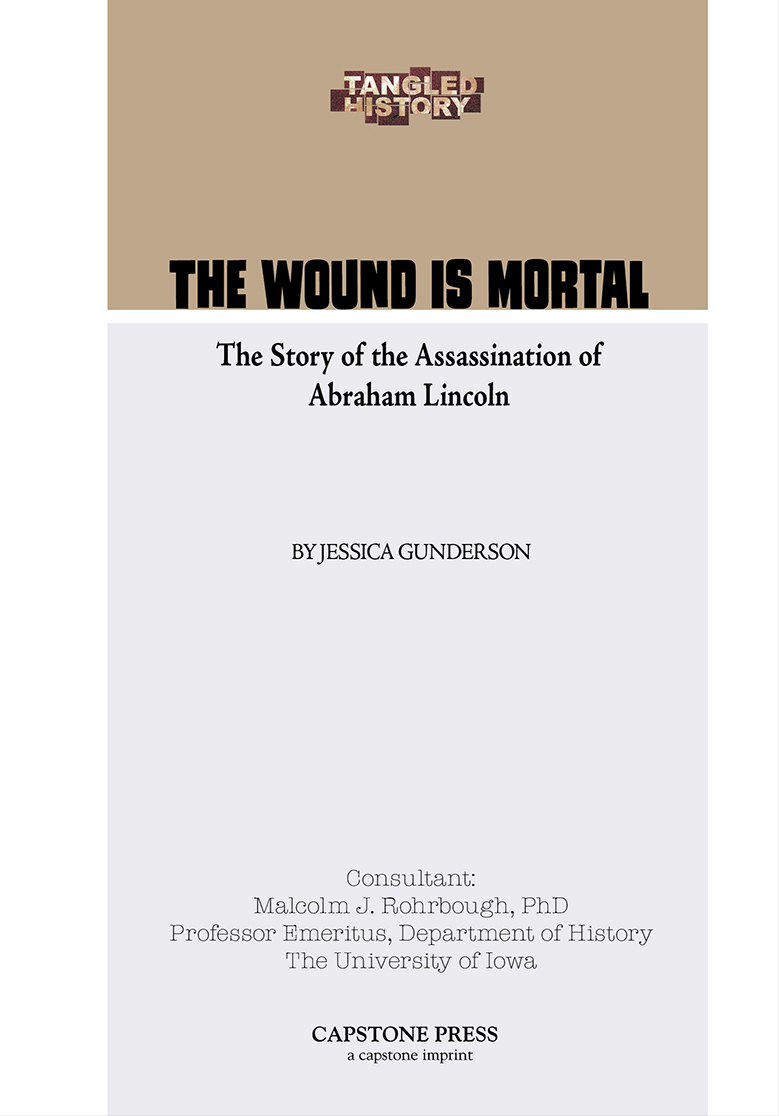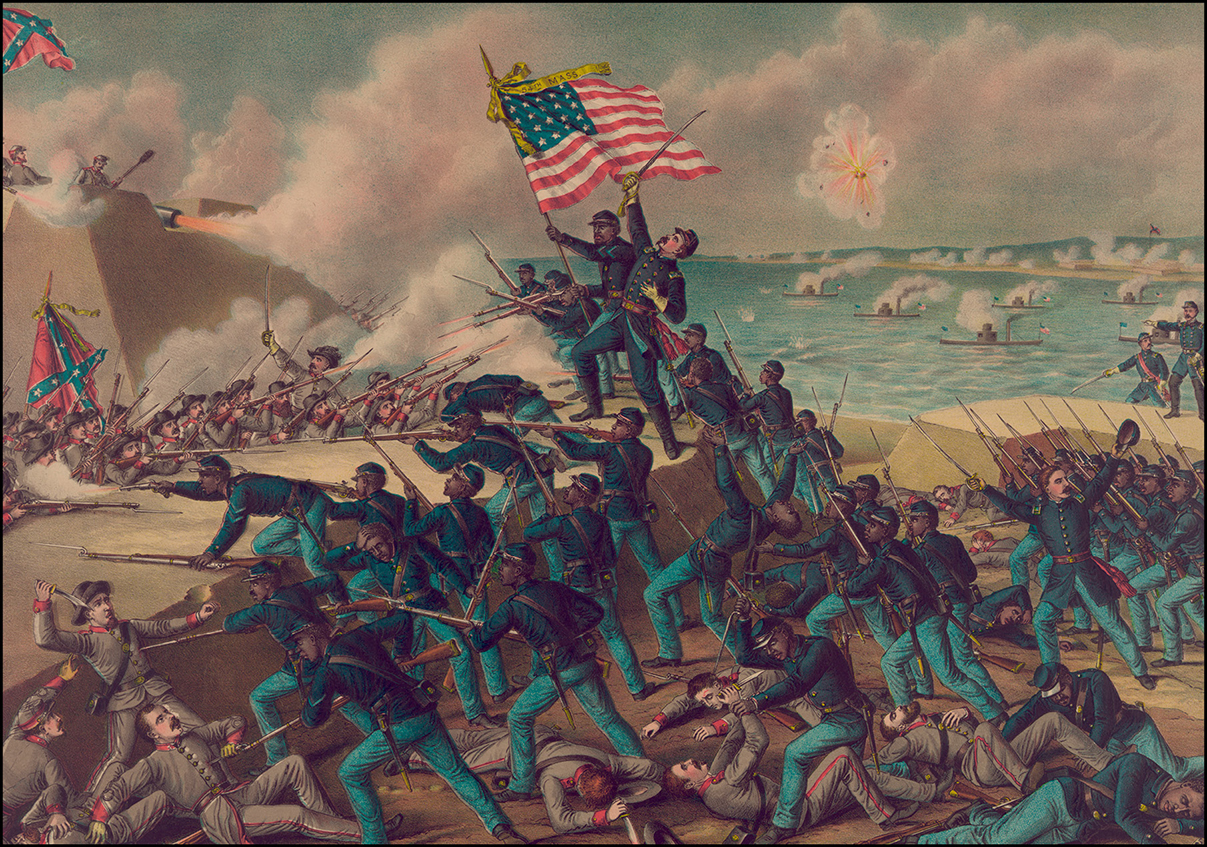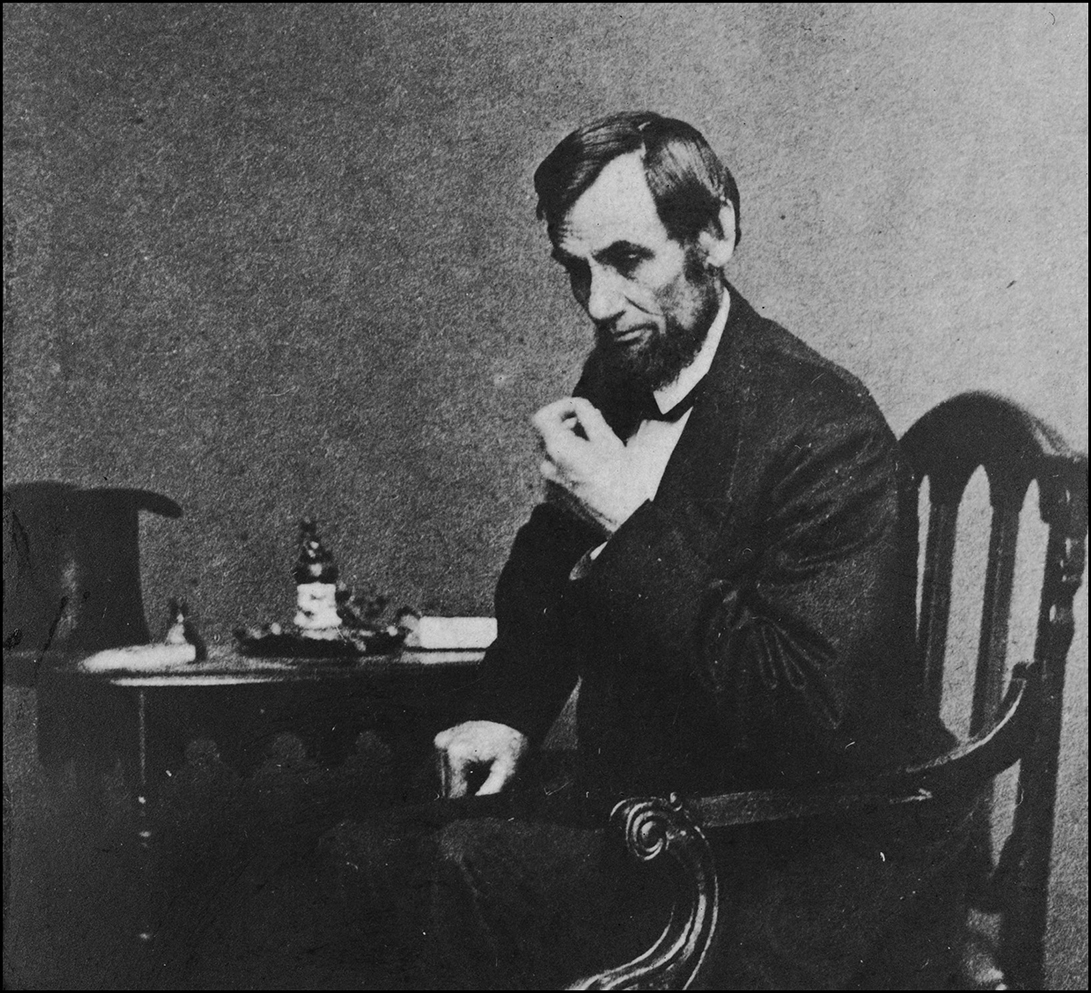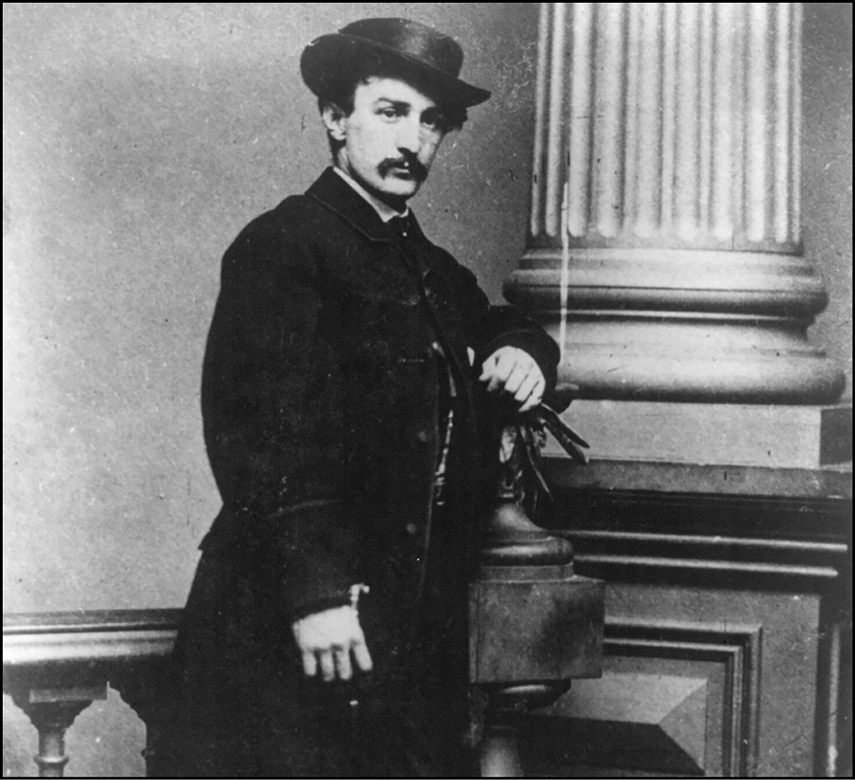FOREWORD
By the year 1865, Americans in the North and South had been exhausted by the war. The first election of Abraham Lincoln back in November 1860 seemed so long ago. Lincolns election and opposition to the institution of slavery had angered many Southerners. Southern leaders were already unhappy with many U.S. laws concerning slavery. They worried that, as president, Lincoln would try to make slavery illegal. Seven Southern states responded to his election by seceding from the United States to form their own country called the Confederate States of America. Soon four more states joined the Confederacy. The Civil War began on April 12, 1861, when Confederate soldiers fired on Union troops in Fort Sumter, South Carolina.
Over the next four years, Lincoln had done his best to lead the Union throughout the war. But he too was exhausted, learning every day about more bloody battles. Despite the struggle, he remained committed to the preservation of the Union. In 1863 Lincoln issued the Emancipation Proclamation, which declared all slaves in the rebel states free. This worried the Confederacy even more. If the Union took control of Confederate states, all slaves in those states would be free.
When Lincoln won a second presidential term in 1864, Union forces seemed to be overpowering the Confederacy. John Wilkes Booth, the famed theatre actor and Southern sympathizer, had grown increasingly angry with Lincoln. Booth spoke openly about his love of the South and his hatred for the Union president. As the prospect of Confederate victory in the war continued to look dimmer, Booth began plotting a way that he himself might turn the tide of the war.
President Abraham Lincoln
Abraham Lincoln
March 17, 1865, The White House
Someone is sobbing. The anguished cries float down the dark hallways of the White House. President Abraham Lincoln opens his eyes and listens. Could the weeping be in his mind? Perhaps echoes of the many Civil War dead? There it is againa muffled sob.
Lincoln swings his legs over the side of the bed, stands, then steps quietly into the hallway. Moonlight shines through the windows, casting the shadow of his tall frame on the wall. The sobbing is clearer now. Louder. He feels drawn to it.
Making his way through the house, he pauses every so often to listen. Why is there so much crying? he wonders. What has happened?
He steps down the stairs, feeling almost like he is floating, and heads toward the East Room.
As he nears, the sound grows louder and seems to come from all around. He stops, unsure now how to follow the noise. Is the sound coming from above, from the sky?
A soldier steps through the door of the East Room. He looks at Lincoln. His face is blank, as though he doesnt recognize the nations president.
Lincoln nudges past the soldier and into the East Room. Dozens of people, all in black, huddle around something in the center of the room. Their shoulders shake with sobs. What is it? He moves closer. A coffin.
Lincoln turns to the soldier. Who is dead in the White House? he asks.
The president. He was killed by an assassin.
The president? Lincoln thinks. But the president is me.
He turns and moves toward the coffin. But the mourners do not move aside for him. He needs a glimpse of the body, just one glimpse
Mr. President? Mr. President, wake up!
Abraham Lincoln opens his eyes to see the morning sun blazing through the curtains. His body is drenched in sweat, and his heart gallops.
A servant stands over him. Its late, he says. I thought it best to wake you.
Yes, thank you, Lincoln mumbles. He rubs his eyes but cant wipe the images of the dream from his mind.
It wasnt me, he thinks. Someone else was lying in that coffin. Not me.
John Wilkes Booth
March 17, A restaurant in Washington, D.C.
John Wilkes Booth pours another glass of wine and stuffs an oyster in his mouth. He swallows and looks around the table at his companions.
I have a plan, gentlemen, Booth announces in a dramatic whisper, leaning forward to look each man in the eye.
John Wilkes Booth
They are all here, his co-conspiratorsLewis Powell, John Surratt, Samuel Arnold, Michael OLaughlen, David Herold, and George Atzerodt. The time has come to put his plan into action.
Tonight, that Lincoln will be traveling to Campbell Hospital. Hell visit wounded soldiers and attend a play there, Booth says. Tonight we will take matters into our own hands. Tonight is the night
How do you know Lincolns plans? Arnold interrupts.
Booth flashes a mysterious smile. I have my sources, he says. As the countrys most magnificent actor, I know everyone in the theatre business.
And? Arnold says. Whats our plan?
Booth continues in a low voice. It will be near dark when Lincoln leaves the hospital. We will be lying in wait for him on the darkest stretch of the road.
And if he is guarded? Atzerodt asks. How will we manage then?
Booth laughs. The president usually travels unguarded. At most, he will have one or two soldiers with him. We can easily surprise and overpower them.
And then? OLaughlen asks.
We will hold that scoundrel for ransom in exchange for thousands of Confederate prisoners. Booth glances around the nearly empty restaurant, making sure once again that no one else is listening. He stands, his dark eyes glittering as he peers at each man around the table.
Tonight, the South will rise again. Tonight, we will kidnap the president!
Mary Todd Lincoln
March 17, The White House
Mary Todd Lincoln gazes out her window onto the White House lawn. The grass is turning green, leaves are budding. Tulips have pushed their way from the soil. It is spring, her favorite season. Spring is the time when everything grows, everything changes.
Except the war. The war never changes, only carries on and on with no end in sight. Abraham has told her the war is nearly won. He says the South will surrender soon, but she doesnt believe him. The last time he told her of the Souths looming surrender, she cried, The war will carry on until we are in our graves! Abraham tried to soothe her. But she could tell he was worried. Each day Mary sees what four long years of war have done to her husband. His face, once smooth, is now torn apart by wrinkles.
Mary peers from her window and sees Abraham emerge onto the lawn. He stands still, gazing into the distance. A chill spreads through her as she thinks: What if this is the last time I see him? Such worries often come to her.
Mary hurries onto the lawn and to her husbands side. I am worried for your safety, she blurts, tears swelling up. Please be careful on your way to the hospital.
Lincoln turns to her. Do not worry so much, my dear, he says. Ive changed my mind. Ill not be going to Campbell Hospital tonight.


